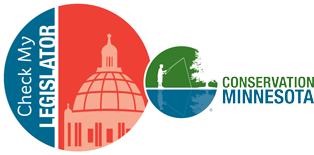House State Government Omnibus Bill
The purpose of administrative rulemaking is to allow state agencies to use their expertise to implement legislation with clear and specific rules when authorized by the legislature. Rulemaking allows for agencies to write substantive standards using their expertise and provides for meaningful public input in the process. Within the House State Government Omnibus Bill, Article 4 proposed to delay all agency rulemaking procedures and subject nearly all rules developed by state agencies to political debate. State agency rulemaking is important in many conservation issues such as the status of Minnesota’s threatened and endangered species, statewide water quality standards, fish consumption advisories based on local pollution levels, and more. Under this bill, nearly all agency rules would be subject to political debate at the legislature, instead of the scientific review and public comment offered within the administrative rulemaking process. An amendment was proposed to remove Article 4 from the bill.
The “No” votes on the amendment to remove Article 4 prevailed, 76 to 53, and Article 4 remained in the bill. SF605 was later vetoed in its entirety by Governor Dayton. *Note, rulemaking was not one of the main reasons Gov. Dayton vetoed the bill, but he does note “rulemaking changes” on the bottom of page 1 of his letter.
What Would Happen?

A “Yes” vote means that the proposal to delay agency rulemaking and politicize rules (like water quality standards) would be removed from the bill.

A “No” vote means that agency rulemaking would be delayed and subject to political debate.
How The House Voted

A “No” vote means that agency rulemaking would be delayed and subject to political debate.


















































































































